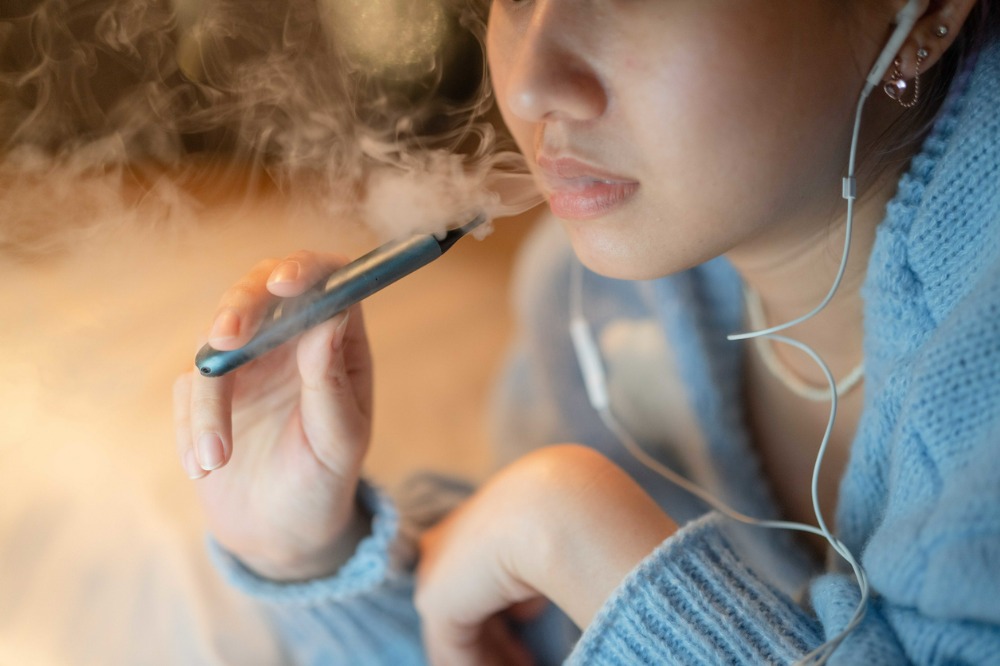
Studies show an alarming one in six high school students have vaped recently and that vaping has become the number one behavioural issue in many schools. Worryingly, research has also shown that nine out of 10 vape shops are within walking distance of schools.
To reduce the number of students vaping and smoking, the University of Sydney’s Matilda Centre recently launched a research trial dubbed ‘the OurFutures Vaping program’ in 250 high schools across Australia – and the results look promising.
Read more: Students unite nationwide to tackle vaping
More than eight in 10 students and teachers have rated the program highly, with more than 8 in 10 students saying it would help them in future.
The researchers say the program’s popularity is indicative of the huge concerns of teachers and school communities about the rising popularity and dangers of vaping.
Recognising this, the Federal Government has presented world leading legislation in parliament that would regulate vaping as a therapeutic good by banning the importation, manufacture, supply, and commercial possession of disposable single use and non-therapeutic vapes.
The passage of the legislation through parliament later this year would mean that only those “in genuine need” will be able to purchase a regulated vape from a pharmacist, and require a prescription to do so.
Other measures aimed at reducing the number of young Australians vaping include the development and expansion of national quit support initiatives, increased awareness and education via new public health campaigns, and newly developed clinical guidelines from primary health clinicians.
A trojan horse?
Minister for Health and Aged Care, Mark Butler, said vapes were initially intended as a “therapeutic good”, sold to governments and communities around the world to help adults quit smoking.
“Vapes are a product that could help hardened smokers – usually people in their 40s or 50s – to quit smoking and kick the habit – not one targeted at children, but that is what has happened,” Butler said.
“If vapes are therapeutic goods then it is entirely appropriate that Australia should regulate them as therapeutic goods, instead of allowing them to be sold alongside candy bars in convenience stores, often down the road from schools.
Butler said the Parliament now has a once-in-a-generation opportunity and responsibility to act to safeguard the health of young Australians for generations to come.
“The best time to have done this was five years ago, the second-best time is now,” he said.
“We urge all Parliamentarians to stand with parents, teachers, schools, doctors and public health experts who are calling for urgent action to stop Big Tobacco from cynically preying on young Australians.”
Prevention better than cure
Associate Professor Emily Stockings from the University of Sydney's Matilda Centre said young people are becoming addicted to nicotine at rates not seen for decades.
“Preventing nicotine dependence before it develops is the best approach, because it impacts brain development and is incredibly difficult to quit,” Associate Professor Stockings said.
“Programs like Our Futures are not only backed by rigorously tested evidence, but are developed in partnership with young people, parents, teachers, and educators, and give young people a say in their own health decisions.”
Associate Professor Stockings said research from Professor Newton, Dr Gardner and herself at the Matilda Centre has shown that engaging Australia’s youth by co-designing reliable, evidence-based resources that they trust breaks through misinformation and gives young people the tools for a healthier future.
“It is encouraging that Governments on all levels are serious about combatting vaping harms in young people and we look forward to furthering research into school-based and social-media based interventions in two new MRFF and NHMRC-funded trials.”


